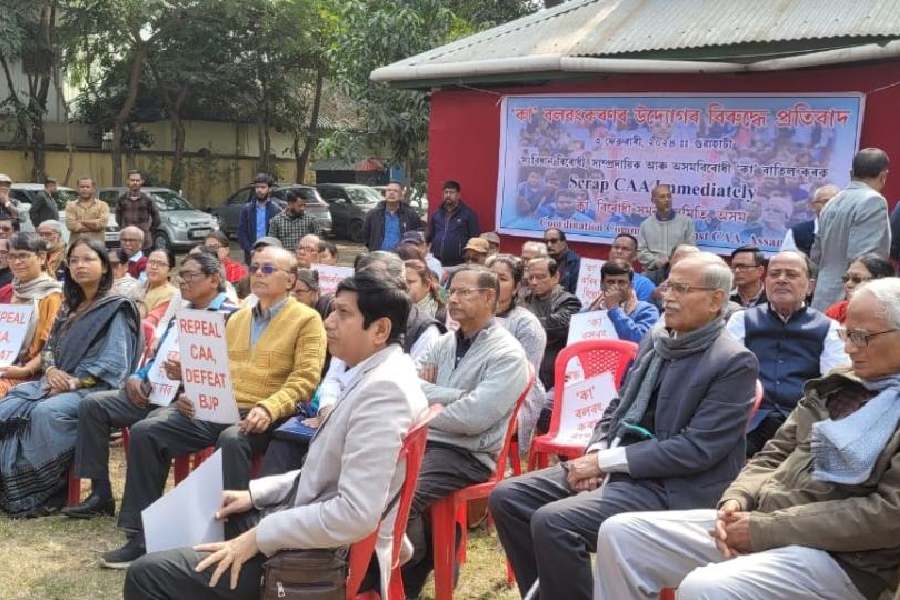Assam capital witnessed protests against the CAA on Saturday, hours before Prime Minister Narendra Modi’s arrival here on a two-day visit, with demonstrators rejecting the contentious Citizenship Amendment Act both now and in the future.
Organised by the Coordination Committee Against Citizenship Amendment Act, which has persistently opposed the Central law since 2020, citing its unconstitutional nature and its perceived threat to Assamese culture and identity, the protest took place on the NCP office premises.
According to Deben Tamuly, the committee’s chief coordinator, the protest was prompted by Union minister Shantanu Thakur’s recent declaration at a public rally in Bengal that the CAA would be enforced nationwide within a week.
The CAA, which expedites Indian citizenship for persecuted non-Muslims from Bangladesh, Pakistan and Afghanistan who entered India before December 31, 2014, was passed by Parliament on December 11, 2019. Its enactment sparked widespread protests, culminating in the death of five individuals in Assam on December 12, 2019.
The demonstration, a peaceful affair conducted between 11am and 2pm, preceded Modi’s arrival in Guwahati around 6.15pm. Protesters voiced opposition to the BJP-led Centre’s imposition of the CAA, targeting Modi and chief minister Himanta Biswa Sarma, while demanding the immediate repeal
of the contentious law. Protesters showed placards bearing messages like “Repeal CAA, Defeat BJP” in the protest site.
While Saturday’s protest was symbolic rather than massive, it drew the participation of senior leaders from various Opposition parties, including the Congress, NCP, CPI, AAP, CPM, AJP and the Raijor Dal.
Tamuly underscored the protest’s objective of drawing attention to the widespread resentment against the CAA in Assam, particularly ahead of the Assembly session commencing on February 5. He reiterated the region’s steadfast rejection of the CAA, emphasising plans for an anti-CAA convention scheduled for February 17.
Opposition to the CAA in Assam and the northeast stems from concerns over its potential to facilitate an influx of illegal migrants, jeopardising the identity and future of indigenous communities, rather than religious considerations. This distinction contrasts with perceptions of the CAA elsewhere in the country, where it is viewed as discriminatory against Muslims, prioritising religion in citizenship matters.











